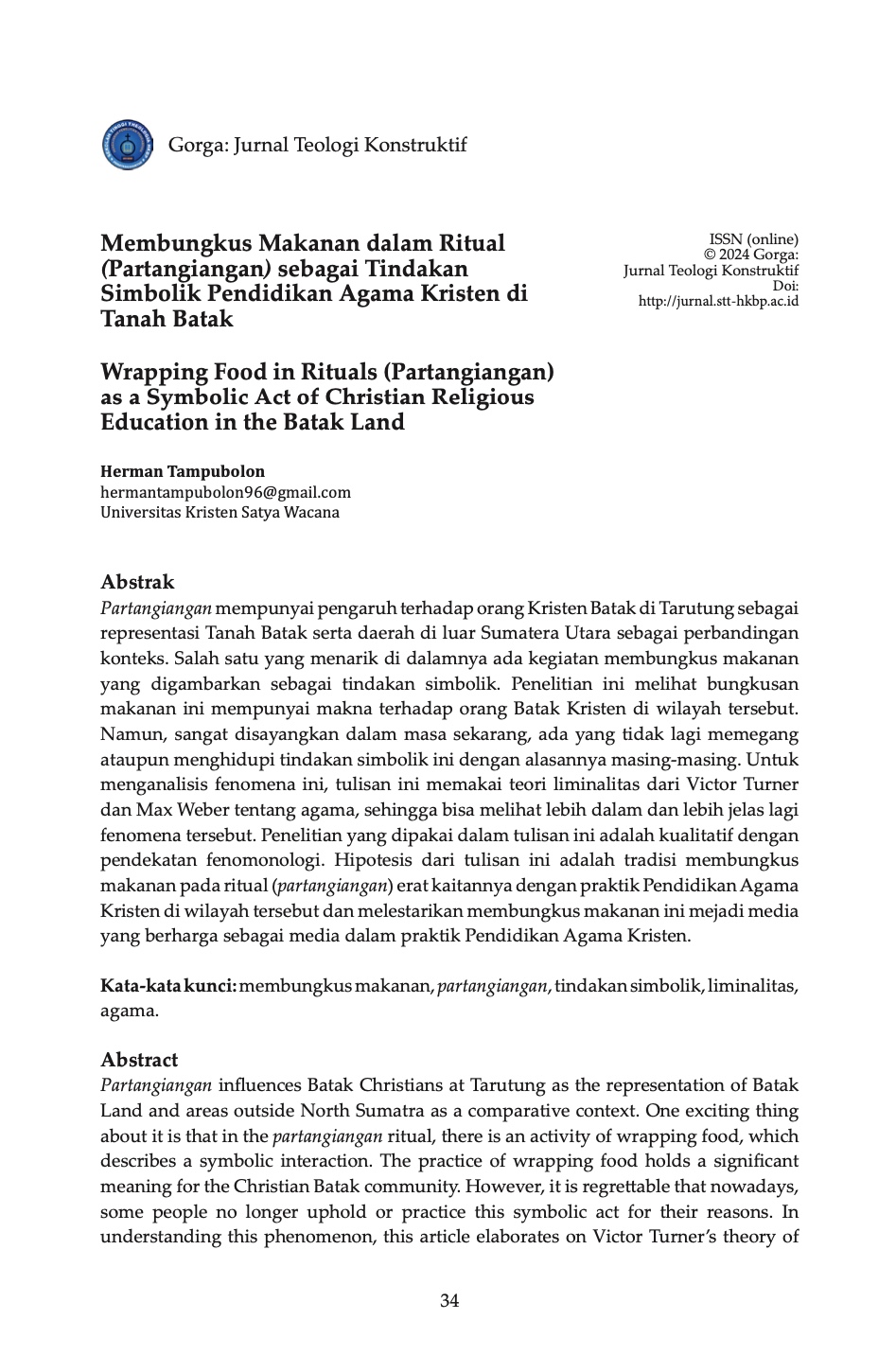Wrapping Food in Rituals (Partangiangan) as a Symbolic Act of Christian Religious Education in the Batak Land
DOI:
https://doi.org/10.62926/jct.v1i1.35Keywords:
wrapping food, ritual (partangiangan), symbolic interaction, liminality, religionAbstract
Partangiangan influences Batak Christians at Tarutung as the representation of Batak Land and areas outside North Sumatra as a comparative context. One exciting thing about it is that in the partangiangan ritual, there is an activity of wrapping food, which describes a symbolic interaction. The practice of wrapping food holds a significant meaning for the Christian Batak community. However, it is regrettable that nowadays, some people no longer uphold or practice this symbolic act for their reasons. In understanding this phenomenon, this article elaborates on Victor Turner's theory of liminality and Max Weber's theory of religion, providing a deeper analysis. This article conducts qualitative research, employing a phenomenology approach. My hypothesis suggests that the practice of wrapping food during partangiangan is closely related to Christian religious education in the Batak community and that this tradition should be preserved, as Christian religious education requires various forms of media, with food wrapping being one of them.

Downloads
Published
Issue
Section
License
Copyright (c) 2024 Gorga: Journal of Constructive Theology

This work is licensed under a Creative Commons Attribution-NonCommercial 4.0 International License.
Dalihan Na Tolu: Journal of Constructive Theology reserves the copyright of all articles published in this online journal.



